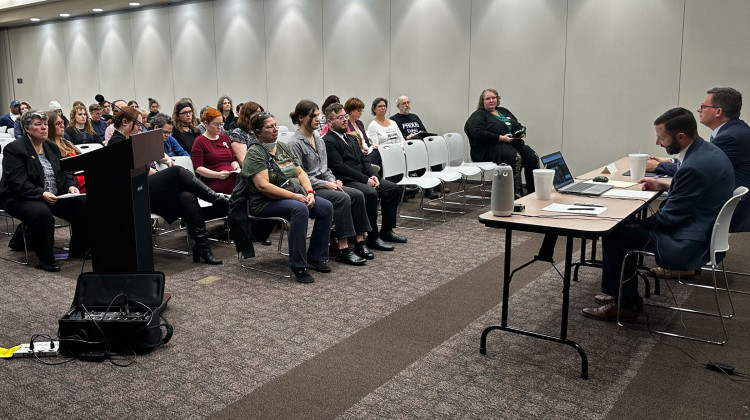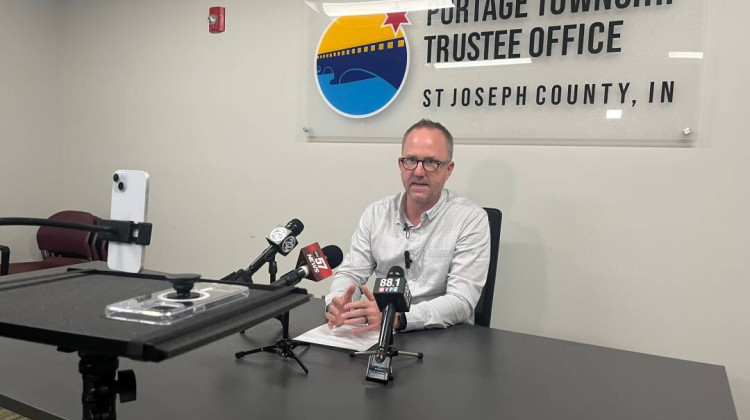
Shelves sit empty at a Target in the Indianapolis area with signs informing customers of limits on the number of products they can buy at a time.
Samantha Horton/IPB NewsMany stores are having trouble keeping shelves stocked with goods during the coronavirus outbreak. One expert warns that could have negative consequences for some of those most vulnerable to the virus.
Health officials continue to warn people not to hoard products. Some stores, including Target, are limiting customers on the quantity of certain products to try to help more customers get the items they need.
Consumers have rushed to the store buying out items including hand sanitizer, toilet paper, bottled water and non-perishables.
As items disappear off shelves, some have started showing up on resale sites drastically marked up.
READ MORE: Holcomb Announces New Steps To Slow COVID-19 Spread As State Reports First Death
Jon Quinn lectures at the Indiana University Kelley School of Business on consumer marketing. He says black markets forming to sell items needed to help protect from possible infection will put people with lower incomes at greater risk.
“If we allow that to happen, then only the higher levels of socio-economic people are going to be able to afford these items and we’re going to see a disproportionate infection rate for the lower socio-economic,” says Quinn.
Indiana does not have an anti-price-gouging law to prevent such black markets for products, unlike other states like Virginia.
The struggle to keep up with consumer demand could also have long-term consequences for businesses. Quinn says the inability of stores to supply consumers with products they need may drive away customers.
“Consumers are going to adapt their behavior and find it wherever they can, and that could have a long-term impact on the retailers' perception of a reliable partner for them,” he says.
Quinn says one of the things stores can do to maintain the relationship with the customer is provide transparency about what is happening and reasons behind policies being made.
Contact Samantha at shorton@wfyi.org or follow her on Twitter at @SamHorton5.
This is a rapidly evolving story, and we are working hard to bring you the most up-to-date information. However, we recommend checking the websites of the Centers for Disease Control and Prevention or the Indiana State Department of Health for the most recent numbers of COVID-19 cases.
 DONATE
DONATE








 Support WFYI. We can't do it without you.
Support WFYI. We can't do it without you.